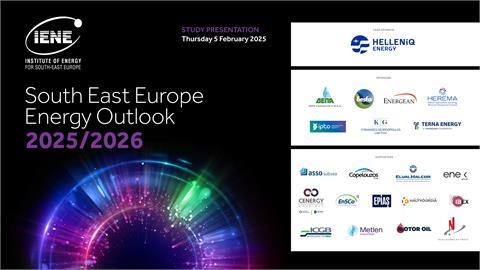As usual IENE΄s bimonthly “Geopolitics Bulletin”,which was send to members on April 27,covers a broad subject area and an even wider geographical terrain- this time Europe and Middle East North Africa (MENA)
Through European eyes we see that US leapfrogs over Europe and China in vaccine rollout and economic regeneration plans following the colossal $1,9 trillion fiscal stimulus plan of US president Joe Biden and a further equally huge $2,0 trillion jobs and infrastructure plan soon to follow. No doubt Europe will struggle to follow suit but its laborious and cumbersome political and administrative procedures cannot compete with the singleness of purpose and speed with which the White House normally moves. Nevertheless seen together USA΄stimulus programme and Europe΄Recovery and Resilience Fund will no doubt impact global economic growth. The IMF predicts global growth of 6% this year and 4,4% for 2022.
The geopolitical ramifications from the anticipated post Covid recovery are serious in the sense that the social and economic fallout of the pandemic has spread unevenly and hence recovery will be uneven,as well. Countries with limited “policy space” to stimulate their economies out of recession will be disadvantaged. Those exporting commodities and tourism are to be disproportionally hit,compared to those exporting services that can be sold digitally.
The economies of oil and gas exporting countries are to be particularly hit if we are to believe an IRENA forecast which says that as the world tries to minimise greenhouse gas emissions, fossil fuel demand by 2050 will be less than a quarter of today’s with oil production dropping to just over 11m barrels per day, compared to 95m of today.
Also,according to Abu Dhabi based IRENA, gas will remain the most widely used fossil fuel in 30 years but it will peak around 2025 before declining to account for 13 per cent of primary energy supply in 2050 compared with 26 per cent in 2018. However,not everybody shares IRENA’s rosy predictions for renewables absolute dominance in the years ahead with the Paris based IEA predicting a strong oil demand rebound at just over 104m barrels per day by 2026, with peak oil demand date being uncertain,to say the least, and moved much further into the future.
IENE’s latest Geopolitics Bulletin also examines the situation in the MENA zone where Libya’s GNU begins the process of governing a torn nation while great power competition intensifies in the Middle East with China having signed a major 25 year economic and trade cooperation agreement with Iran.With a possible revival of the JCPOA agreement Iran’s stakes are rising which is causing great consternation in Israel which is still struggling to form a workable government.
European developments are equally well covered in the “Bulletin”, with USA’s return to a more active role in the continent being a major feature of President Joe Biden’s new foreign policy agenda. Meanwhile an EU-Russia rift emerges over human rights with Washington seeing this as an opportunity to reconnect with Brussels.At the same time Russia and China move closer together in an effort to deflect USA’s growing diplomatic and defence assertiveness.Finally, a rapprochement between Turkey and Greece appears on the horizon as the two adversaries begin to talk with the EU trying to play a more active role.




